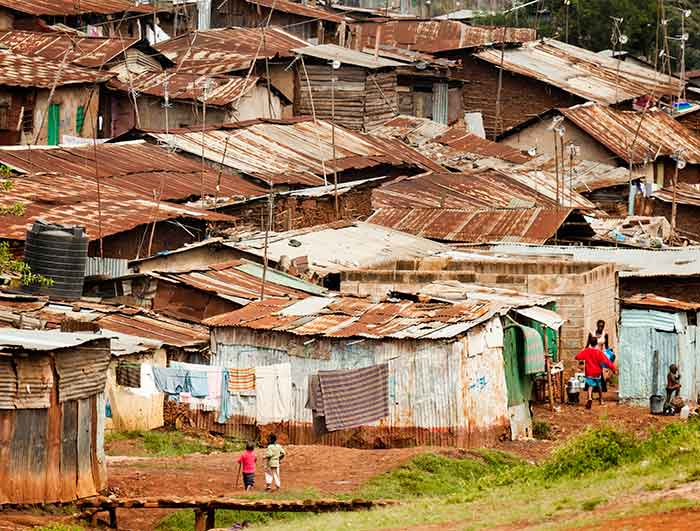africa_istock.jpg

A slum neighborhood in Nairobi, Kenya
Rapid urbanisation and a growing slum population threaten to plunge Africa into an affordable housing crisis, as its people flock to cities where they find themselves unable to afford to buy property or access mortgage loans.
Ede Jorge Ijjasz Vasquez, senior director for the World Bank Group’s social, urban, rural and resilience global practice, said: “In many African countries, only the upper 5-10% of the population can afford the cheapest form of formal housing.
“As a result, 90% of Africans live in informal housing, where living conditions are often substandard, unsafe and without basic services like water, electricity and sanitation. Targeted interventions in the informal market can bring rapid improvements in the quality of existing housing stock.”
While many governments in Africa have been trying to meet the demands of growing urban populations by providing housing, the bank said that these programmes are largely very costly to the government, out of reach of the urban poor and do not significantly increase the amount of affordable housing.
In its report, Stocktaking of the Housing Sector in Sub-Saharan Africa, it argues that new approaches to housing policy are needed, as the continent’s urban population looks set to grow to 1.2 billion by 2050 and projections put as many as 4.5 million new residents pitching up in informal settlements each year. Africa is the only region where slum populations are growing rather than declining.
The government should target informal housing in low-income areas and households, it said, upgrading infrastructure, improving land administration and planning regulations and expanding access to finance through microfinance loans, credit groups and cooperatives.
Mamta Murthi, the World Bank’s acting vice president for Africa, said “governments will need to join hands with the private sector” to meet this challenge. A more strategic approach to investment should encourage this, the report said.
“Apart from the immediate and obvious benefits of adequate housing, a well-functioning housing sector leads to economic growth that can improve livelihoods, create jobs, and expand the market for goods and services,” added Jonas Parby, World Bank urban specialist and one of the authors of the report.













